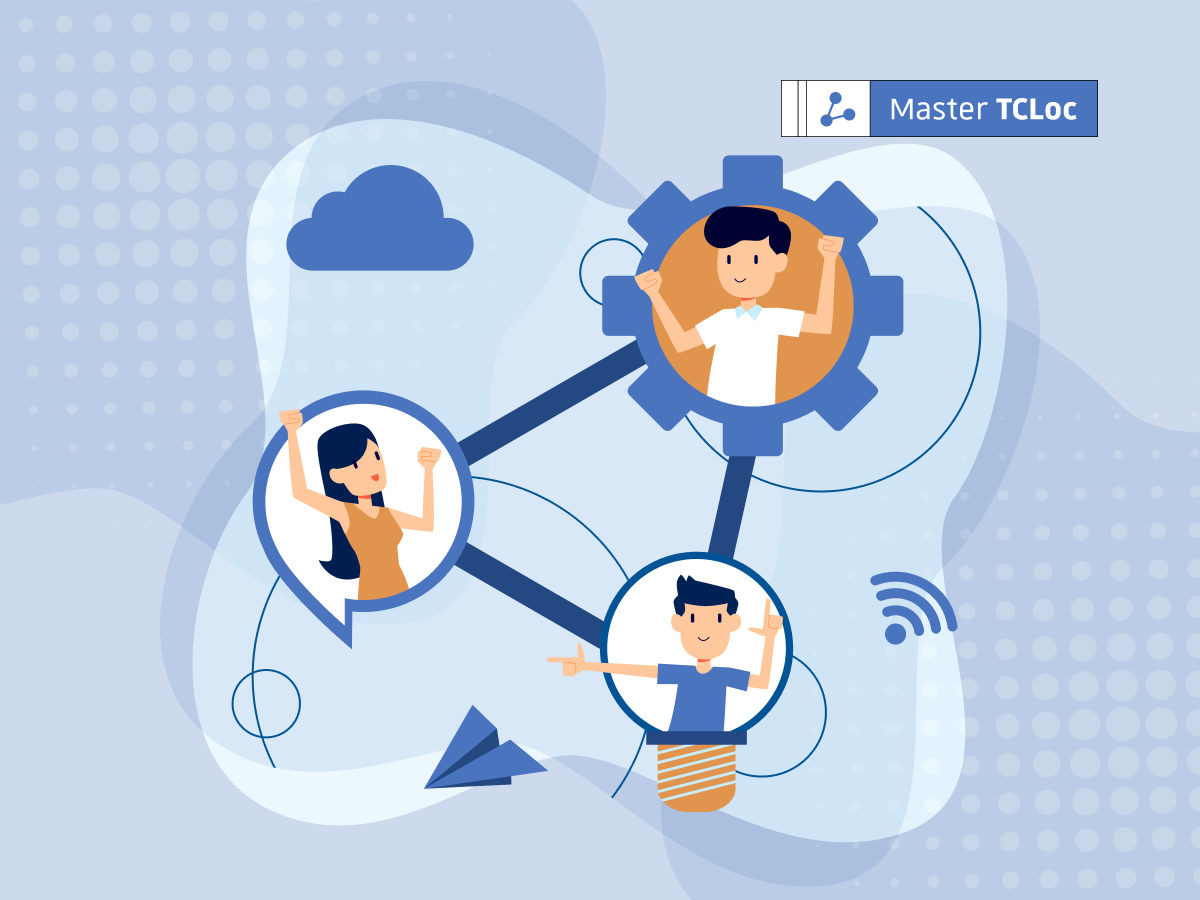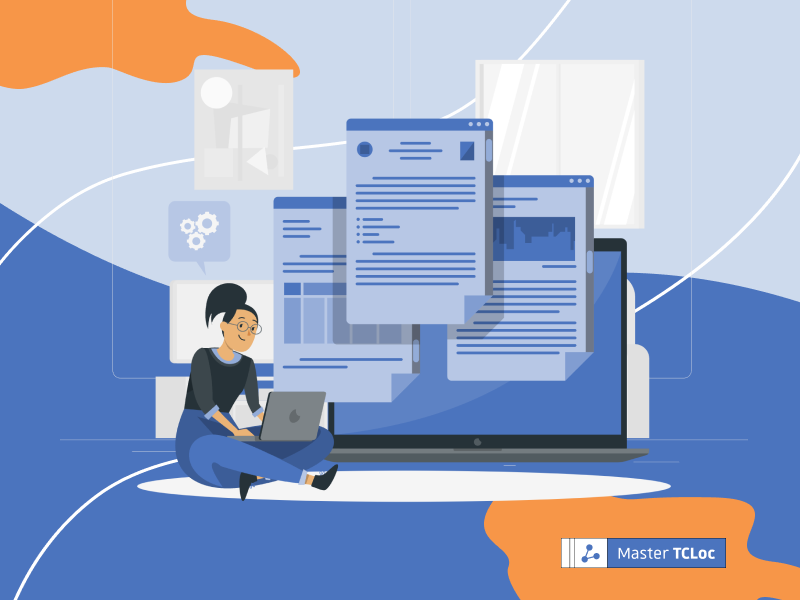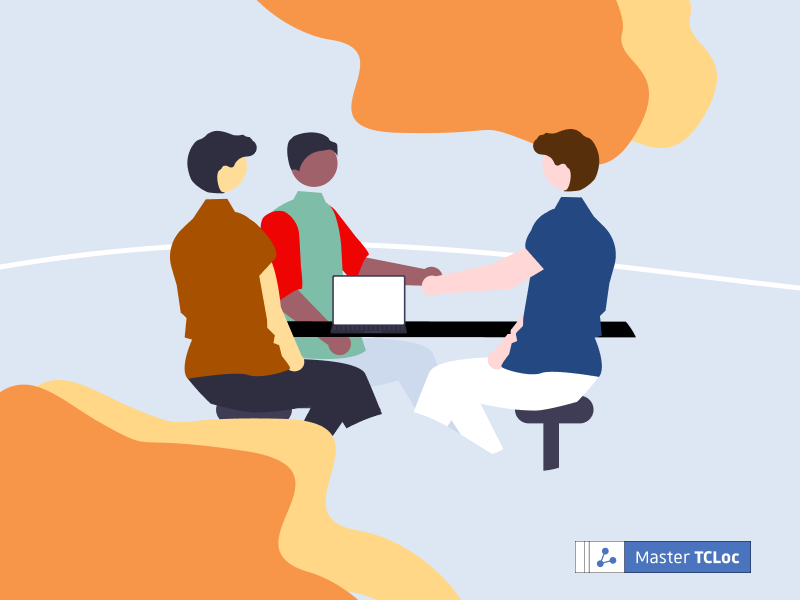Ray Gallon has been an Information 4.0 instructor since the creation of the TCLoc Master’s. With 40 years of experience as a communicator, he is now co-founder of The Transformation Society, a research and consulting firm. Discover his background, his way of teaching, his point of view on the future of communication.
Meeting Ray Gallon
D.P: Who are you and what do you do in life?
G.R: Well, I have done many things in life, I am an old guy, so, I have a lot of years behind me, but the common thread is Communication. So, I actually started working on art and culture, I have a diploma in scenography and stage design. I later became a radio producer. It was my main activity. At one point, I became a manager of the public radio station in NYC. I have a mix of nationalities, I grew up in the USA, but I am also a Canadian National. My radio work was on both Canadian and US public radio stations, and to some extend also In France, I did some work for France Culture, and several other European radios as well.
And somewhere, mid-career, I became involved also with electronic networking, in the early days on the personal computer, and that is another form of communication, communication across computer networks. And through the networking, I made contact after moving to France, with people who were involved in technical communication. It became a passion, and so, I really became involved very deeply in technical communication and related fields, and I spend most of the last thirty years doing that.
Now, what I do is I have a consulting company, called The transformation Society. What we do is consulting around all kinds of problems of transformation, so digital transformation, but also always from the human side, from the human point of view. A humanist approach to digital transformation, we determine how to build learning organisations, how to deal with different questions of learning. Think about what we do in technical communication. It’s primarily learning. So, we have to think about different learning styles, different cognitive theories, different ways of making sure that the information that we provide to our users is actually, not just usable, but is going to be helpful, is going to help them through the tasks they need to do. Quite involved and quite complicated to try and figure out. Superfine information is a complex process. It is a long answer, but it is a long career…
What is Information 4.0?
D.P: And what is this teaching, information 4.0? What do you teach students?
G.R: Well, I like to think, actually, that I do not teach. At least not in the traditional sense. In my sense, I am a source of information, and I try to help people. So, Information 4.0, it is about information being cut up into small pieces. Other people use the term micro content. It means the same thing. The notion in Information 4.0 is also rather than pushing information at people, offering it to them. The idea is that we want to offer it to people in some sort of ontology. It allows people to make a selection of what they think they need to learn.
Today, when we need to know something, we go to Google, or some other search Engine, and we get an instant answer for the very specific thing we want to know. That means that we might have some very advanced information, without having some important background information, something less advanced.
So we all, any one of us, no matter what we do, who we are, we all have what I refer to as black holes of information. And as an information provider, I can’t know what your black hole is, or somebody else’s black hole. That is why we want to offer information. So the trick is to let them fill their own black holes. Why am I explaining this in detail? Because that is what I also try to do in my course.
So, I have taken thirteen linear video modules, and cut them into 37 or 38 micro video modules. I have provided a taxonomy to students to help them choose what they want to look at in any given moment. And I am there to help them if they need help, if they have questions, or if they want to make comments and start a discussion about something.
A really important part of the course is also the discussions that we have, in a forum. We can start discussions on different subjects and exchange. Because Information 4.0 is not just about text. It is something brand-new. It is evolving, in the way that technology is evolving, which is very rapidly. So, there is nothing to say that students in the class can’t contribute directly to how Information 4.0 develops. Because it is all new. We are inventing it as we go.
So, I am not teaching some hard fixed body of knowledge. I am rather helping students to a quiet understanding of methodologies and ways of approaching information, with reflection about information and information development. I hope it going to be useful for them, to help in carers even if everything changes. And I like to quote Peter Drucker, a very old man now, a management consultant, who said at one point: “the only thing we know about the future is that it will be different”.
All about communication
D.P: You said that you have more than 40 years of experience in communication. What made you decide to become a communicator?
G.R: I didn’t become a communicator, I always was a communicator. I mean, it is just something I have to do. It is interesting because my mother was a teacher, my wife is a teacher, and there are other teachers in my family, and teaching courses is all about communicating in one way or another. I like to teach.
D.P: What advice would you give to young people who want to communicate?
G.R: M advice is: Communicate! But – and this is very critical – communication also means listening. Communication is multi way. Communicating does not just mean to transmit, you also need to receive. And listening, I mean this is not obvious, but listening doesn’t mean waiting for your chance to speak, it means hearing what other people are communicating to you. This is sometimes difficult even for experienced people like me. I always need to remind myself of that truth. If I have something that I really want to let you know about, I am so excited about wanting to let you know about it, that I may forget you also have things that are important to you. And you are not going to be in a position to actually hear if I do that.
A word about TCLoc program
D.P: Do you have something to add?
G.R: I would say one thing, that the TCLoc program is doing an online Master’s that has existed for five years. And every year we learn something in the program, it is improved year on year. And you know, we are one of the few programs that really did not have to scramble in the Covid crisis. Obviously, individual people are still affected by it, but with that program, we can help people, including our colleagues in universities, everywhere. I think that in some ways we are a model project.
I also have to say I consider it to be a privilege and an honor to be teaching in this program with so many extremely interesting and talented fellow instructors. (…) It is so interesting to be able to exchange, to listen to some of my fellow instructors, to be able to exchange about some of the challenges of teaching in the program, and what is going on in the world. For me, it is a very great experience, and I love doing it.
The diverse skills and expertise our students and our instructors is what makes the TCLoc master’s degree great. Learn more or apply for the TCLoc Master’s program !



